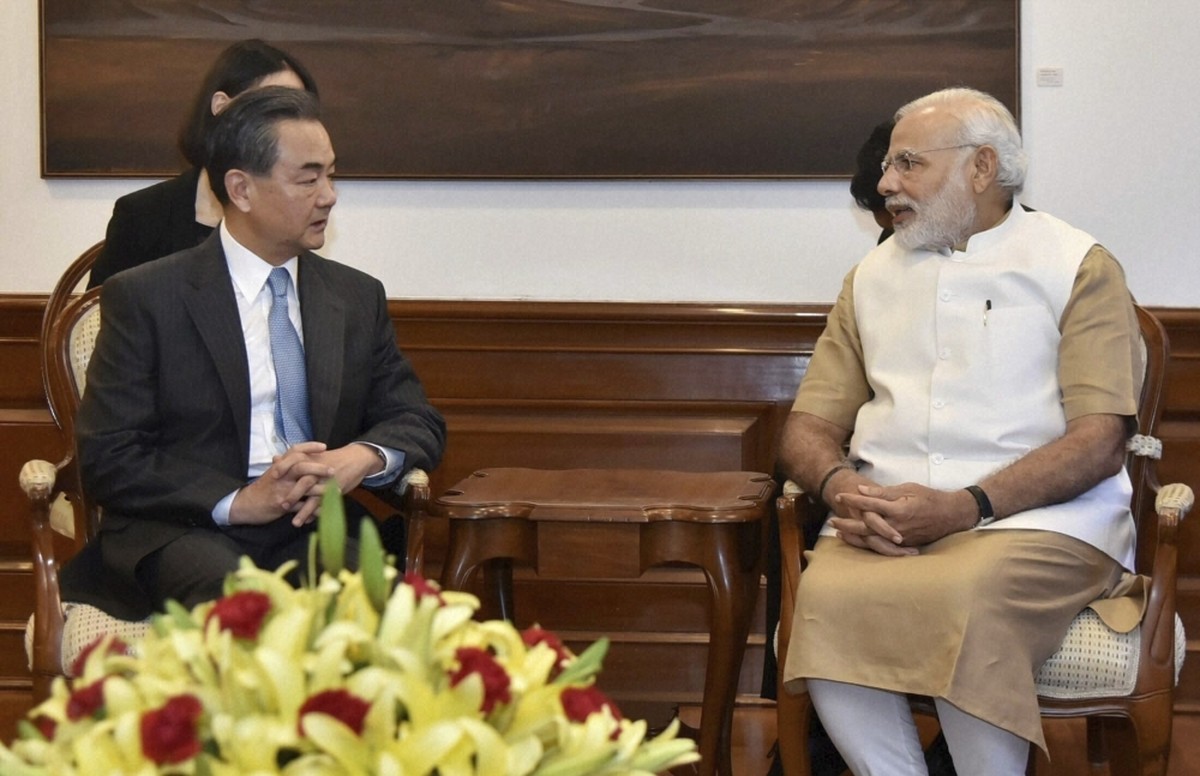19/08/2025
19/08/2025

NEW DELHI, Aug 19, (AP): Indian Prime Minister Narendra Modi will meet with China’s top diplomat on Tuesday in a sign of easing tensions between the nuclear-armed neighbors after a yearslong standoff between the Asian powers. Chinese Foreign Minister Wang Yi, who arrived in India on Monday, is scheduled to hold talks with Modi and other leaders about the disputed border in the Himalayan mountains.
Reducing the number of troops on the border and possibly resuming trade in the contested region are expected to be on the agenda. The rebuilding of ties coincides with friction between New Delhi and Washington after US President Donald Trump imposed steep tariffs on India, a longtime ally seen as a counterbalance against China's influence in Asia.
India is part of the Quad security alliance with the US, along with Australia and Japan. India and China's decades-old border dispute worsened in 2020 after a deadly clash between their troops in the Ladakh region. The chill in relations affected trade, diplomacy and air travel as both sides deployed tens of thousands of security forces in border areas.
Some progress has been made since then. Last year, India and China agreed to a pact on border patrols and withdrew additional forces along some border areas. Both countries continue to fortify their border by building roads and rail networks. In recent months, the countries have increased official visits and discussed easing some trade restrictions, movement of citizens and visas for businesspeople.
In June, Beijing allowed pilgrims from India to visit holy sites in Tibet. Both sides are working to restore direct flights. Last week, the spokesman for India’s foreign ministry, Randhir Jaiswal, said India and China were in discussions to restart trade through three points along their 3,488-kilometer (2,167-mile) border. Manoj Joshi, a fellow at the Observer Research Foundation, a New Delhi-based think tank, said relations are still at an uneasy level of normalization.
"Settling the boundary issue between the two countries requires political compromise at the highest political level,” said Joshi, who also served as a member of the advisory board for India’s National Security Council. He asserted that the countries are "still talking past each other when it comes to the border dispute and issues surrounding it."
Ahead of his meeting with Modi, Wang met India's National Security Adviser Ajit Doval and discussed the way forward to bolster the relationship. "The setbacks we experienced in the past few years were not in the interest of the people of our two countries. We are heartened to see the stability that is now restored in the borders,” Wang said.


